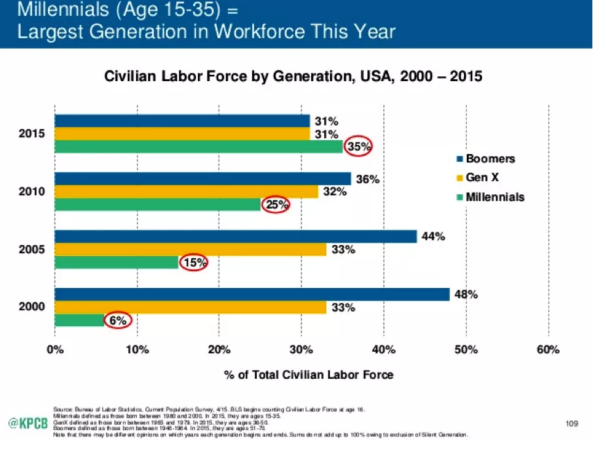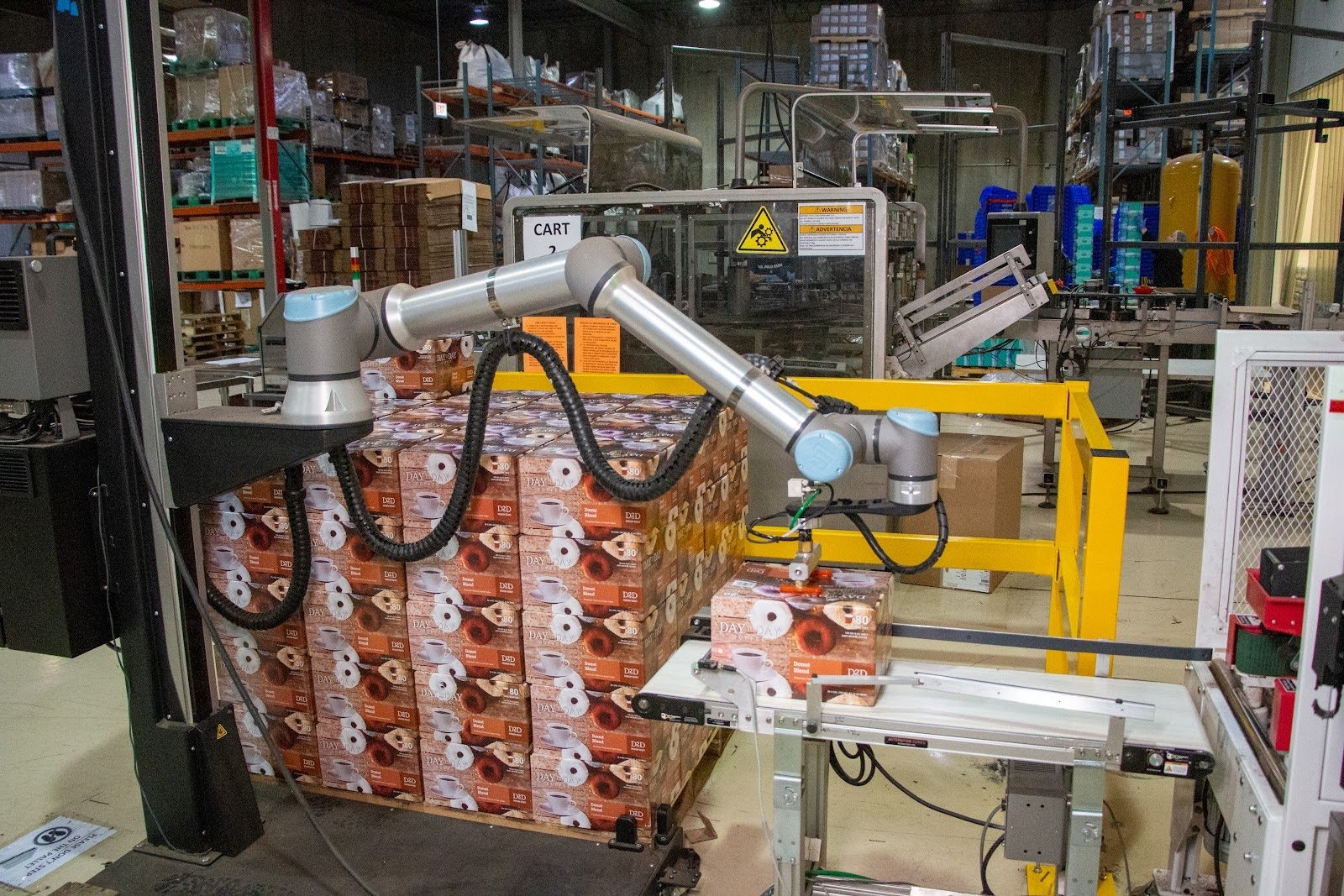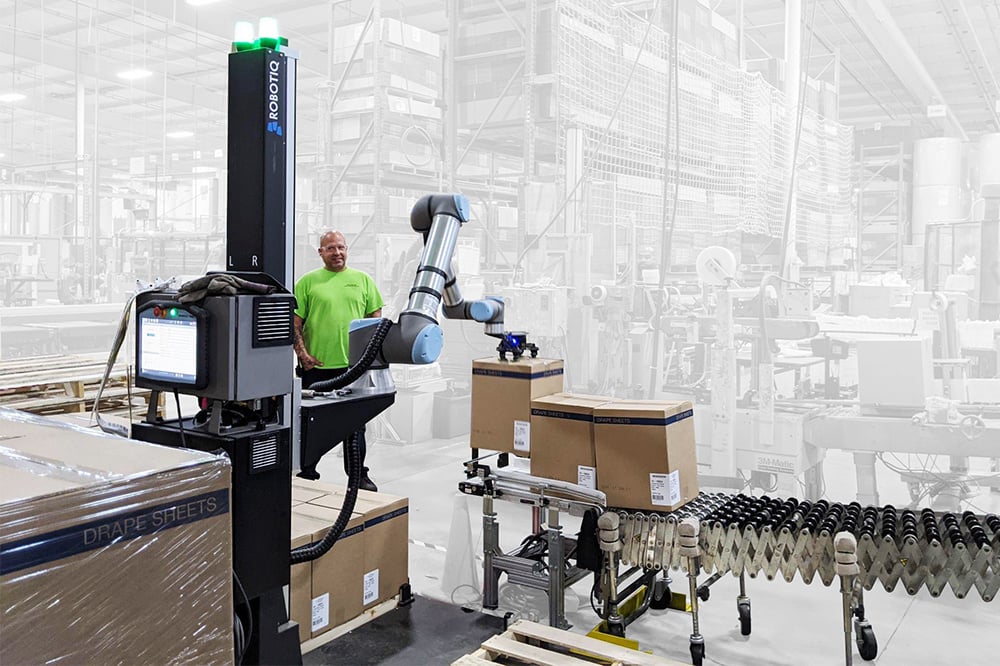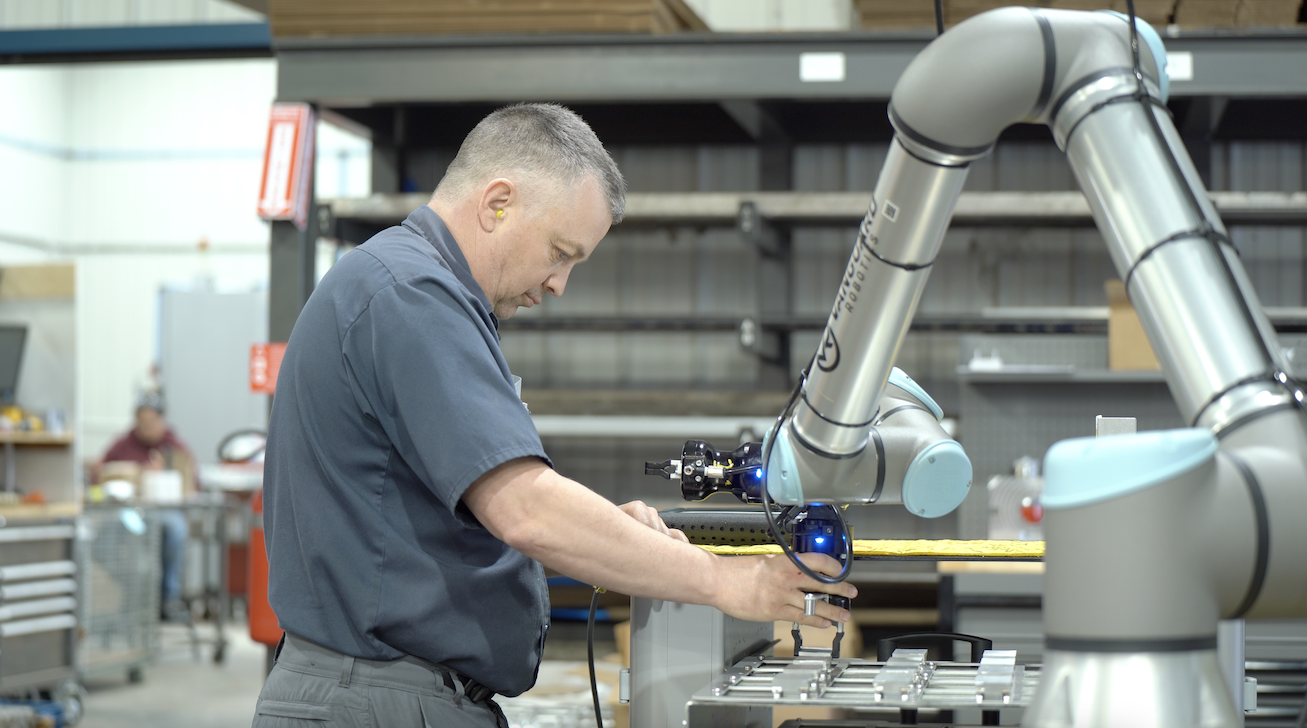Why Industrial Distribution Needs Millennials

Posted on Jul 19, 2016 in Manufacturing
4 min read time
Millennials are primarily attracted to working in the technology industry, and it’s time they knew that manufacturing and distribution are quickly joining forces with the techies. Robotics are now becoming central to the distribution industry, allowing businesses of all sizes to streamline their processes with the help of automation. The presence of varying kinds of coworking robots in distribution warehouses opens up technology jobs in a setting that would typically be considered factory work – a fact that is often overlooked by tech savvy youngsters entering the workforce.
It is no small task to first attract and then satisfy this new generation of workers who, largely due to advances in technology, have a much different idea of what work is than their predecessors. How will the industry appeal to an entire generation of people who are well educated and used to the flexibility and on-demand lifestyle afforded to them by smartphones and access to just about anything their hearts desire at the push of button? Although many of their parents and grandparents made their smartphone toting possible through long, hard careers in things like distribution, a world of possibilities stands between millennials and the high tech careers available in the industry. How can we close this gap?
Millennials in the Workforce

Born between the years of 1980 and 2000, millennials are central to any technology related industries as not only the most promising demographic to fill the gap of the quickly retiring baby boomers, but also as inherently tech savvy individuals. Millennials now account for 35 percent of the workforce, and as employers you can’t afford to overlook them. Their values are drastically different yes, and their ways of working may seem unprecedented, but these, when wielded well, can be a huge asset to your company. Many people who employ millennials will attest to their being among the most flexible and creative workers in the company, producing things that never lack to be surprising.
Companies like GE are setting the stage for having rebranded themselves for the sake of recruiting millennials, presenting manufacturing as a high tech industry with bigger goals in mind than simply churning out cars. Their slogan, “imagination at work” says it all. This is crucial to attracting and keeping skilled workers in the pipeline, and may require that companies actually turn to new technologies for the sake of attracting the talent they need. Millennials won’t be satisfied with traditional manufacturing and distribution work environments, and yet companies need their employ. This is bigger than a single company’s problem to fix, but one that is a global hurdle demanding technology innovators stay ahead of the curve for the sake of meeting employment needs.
How Do Their Values Differ?
Recently, 4000 graduates were asked what their top three values in the workforce include. Raised in a society where higher education is a given, millennials’ number one valued work benefit is training and development. They don’t expect to be hired into a position they know everything about, but one that will continue to challenge them with new tasks to learn and continuing education opportunities, as well as the chance to be promoted. Their second value is flexible working hours. Accustomed to leveraging technology and cloud computing to be able to work from anywhere at any time, millennials put a high priority on having freedom in their work. Cash bonuses are the third value of millennials, as it affords them the opportunity to travel places and enjoy the freedom that technology offers them in work.
Other values that made the list are things like free private healthcare, pensions and other retirement savings plans, more vacation time, and financial assistance with things like housing, travel and student debt. The Meeker report found that 32 percent of millennials believe they will work mainly flexible hours in the future, and 38 percent of them are already freelancing. While you consider your recruitment tactics in attracting this new generation of workers, bear in mind that their values in work are different than those than have gone before them, and retaining them as employees will require that you afford them the freedoms that will keep them producing great work for you.
3 Principles for Hiring and Retaining Millennials
- Give Them Freedom
Desiring the money and time to work freely, millennials will be motivated to work well by this alone. The appeal of working in the technology industry is that many companies allow their employees the freedom of working from home and having unlimited vacation or out-of-office time so long as their work gets done. Freedom in the work itself is also a clincher for them. With the desire to be innovative, it’s important that you leave room for millennials to have creative freedom with their tasks. Give them space to create new things for you and they will surely thrive. If there is a new process or technology that they believe will transform and improve upon the way things are being done, by all means let them experiment and you’ll undoubtedly benefit from it. - Corporate Social Responsibility (CSR)
A recent survey showed that 30 percent of millennials are more interested in meaningful work than high pay, so they are motivated by CSR initiatives. Whether it’s the company’s actual products and services being designed around providing a great good for the world, or smaller community focused projects that allow them to give back to their immediate surroundings this is what they want in a company. Give them something they feel good about doing. - Never Stop Challenging Them
Complacency will never satisfy this generation of workers who are used to being on the move, so don’t ever let monotony creep into their work. Continually give them new responsibilities and new things to learn. Make sure you have a growth structure in place that will allow people to move into new positions when they are ready. Give them the opportunity to attend conferences and other continuing education environments. This will keep their interest in a world of endless possibilities, and a generation that is typically keeping a job for only two years.
There is no getting around hiring millennials and adapting the industry and your company to their values as workers. If you are struggling to find and keep skilled employees, it’s time to tap this resource with new employment models and perhaps by looking into new distribution technologies, like coworking robots, that will change the way you do work, and open up new technology jobs in your company. The times are changing and we need to stay ahead of them!







Leave a comment